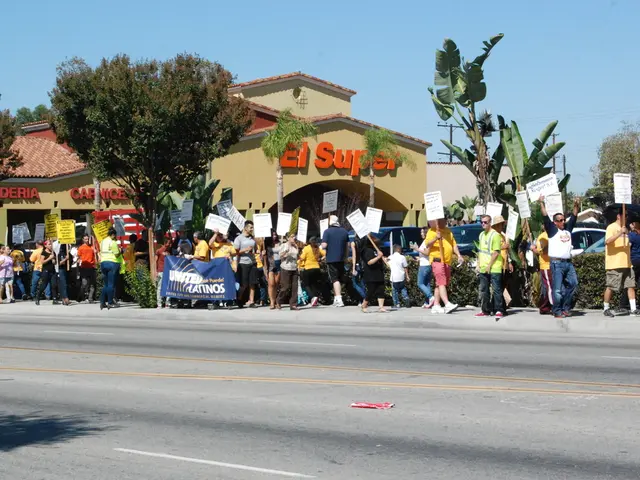School authorities implementing backpack bans in response to shootings lead students to conceal tampons in their hair and footwear for personal hygiene purposes.
Clear Backpacks and the Hidden Struggles
Amidst the surge of gun violence in schools, many educational institutions have introduced drastic measures. These include the use of clear backpacks or blanket bans on traditional rucksacks. However, these new regulations have brought forth unforeseen challenges, particularly for students navigating their periods.
Why the Bag Bans?
Following a surge of gun-related incidents in schools, districts in Michigan and Idaho enforced bag bans, making it hard for students to conceal dangerous weapons. A student in Idaho, found with a gun, prompted the implementation of this policy. In response, students started using unconventional alternatives like laundry baskets, coolers, and strollers. The Parkland and Uvalde school shootings also led to the widespread adoption of clear backpacks by several institutions.
Security experts and concerned parents question the effectiveness of these extreme measures, as determined perpetrators may find other ways to smuggle weapons onto campuses. Nonetheless, the priority given to student safety remains unwavering.
The Untold Struggle: Managing Periods in Clear Backpacks
A recent investigation by The Cut revealed a surprising side effect of these new regulations – students managing their periods are finding it increasingly difficult to carry menstrual products discreetly. The visibility ofsee-through bags can lead to feelings of embarrassment and awkwardness, adding another layer of complexity to an already challenging phase in a young person's life.
It's important to note that 86% of those who menstruate have experienced an unexpected period in public at some point. For a teenager equipped only with a friend or teacher's assistance, this experience can be highly distressing.
Common hiding places for tampons and pads now include pockets, shoes, and even hair tied with headbands. With less than half the states in the US providing free period products in schools, the situation becomes even more precarious for low-income students who may struggle to afford menstrual essentials.
Period Pains and the Ignored Aspect
Period cramps affect around 36% of young women and girls in the UK, causing them to miss school. This fact, however, is seldom considered in the context of clear backpack mandates. The visibility of menstrual products can amplify feelings of shame and body dysmorphia, particularly for trans and nonbinary individuals.
To mitigate these issues, schools could implement solutions like providing secure storage facilities, installing free menstrual product dispensers, offering non-transparent pouches for personal items, or advocating for policy changes that prioritize student comfort and privacy. By acknowledging and addressing these concerns, schools can work towards creating a more inclusive and supportive environment for all students.
- Despite the emphasis on student safety through bag bans and clear backpacks, there's a growing concern about the hidden struggles faced by students managing their periods, with visibility of menstrual products leading to feelings of embarrassment and additional complexities.
- In the debate over bag bans and clear backpacks, it's crucial to consider the impact on period equity in schools, as the visibility of menstrual products can compound feelings of shame and body dysmorphia, especially for trans and nonbinary students, and exacerbate the challenges low-income students face in accessing necessary menstrual essentials.








